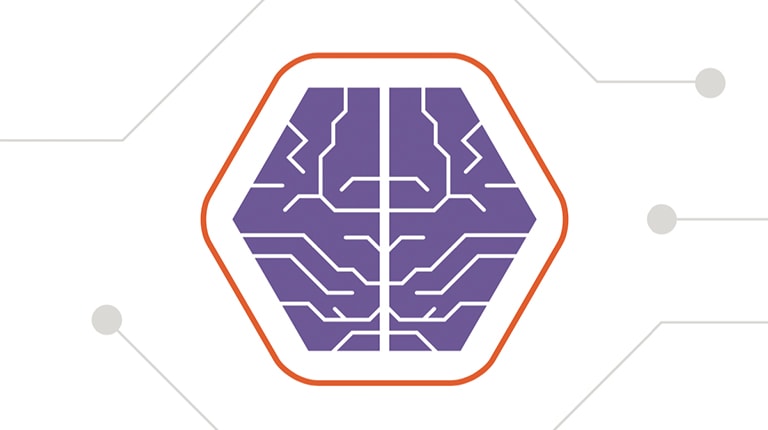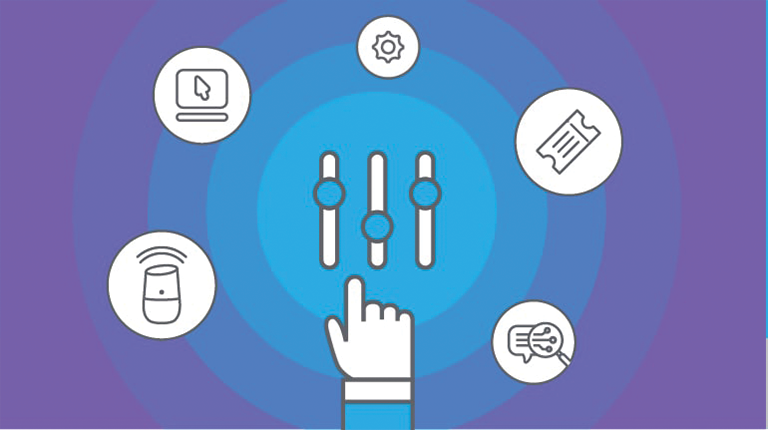The terms ‘artificial intelligence’ and ‘machine learning’ are often used in conjunction with one another to describe leading-edge technologies. But while the two are interconnected, machine learning and AI are different. It’s perhaps easiest to define machine learning as one of the underlying technologies of AI.
What is it?
Artificial Intelligence
Artificial intelligence is a form of computer science that performs what human beings can also perform, but at a faster, automated level. This goes beyond basic tasks. AI can perform ways of thinking, such as reasoning, generalizing, and learning from experience, and has the ability to be flexible with tasks, rather than being bound to one. The goal of AI is to imitate and mimic human behavior, and machine learning provides the mathematical tools that allow us to do that.
Machine Learning
Machine learning is a set of algorithms learned from data and/or experiences, rather than being explicitly programmed. It is one way in which AI can complete tasks and perform better in the future, through self-learning and analysis of patterns and algorithms. By applying machine learning, AI learns what to do and what not to do on its own and applies this to future situations.
What is it used for?
Artificial Intelligence
Artificial intelligence can complete a variety of tasks in tandem with humans. These duties range from administrative tasks, such as filing papers, to decision-making tasks, such as determining the risk levels of certain corporate decisions or actions. It is a support system for humans and is meant to speed up processes and increase workplace efficiency.
Machine Learning
Machine learning is used for processing and organizing data and information, as well as continually learning how to complete “smart” tasks in a quicker, more intelligent manner every time. It predicts problems and attempts to solve them, but it does not create, which is why humans are necessary. Humans create and act on the data and information that machine learning processes.
What kinds of processes can it improve?
Artificial Intelligence
Artificial intelligence contributes to the augmentation of work production and value by giving humans time to complete complicated tasks. It opens up the opportunity for people to work on brainstorming and creative issues. This is often seen in customer support. AI is at the forefront of customer service, as it can interact with customers over the phone and lead them closer to having their questions answered, freeing up the support line for humans to handle more complicated customer questions.
Machine Learning
Machine learning is programmed before it is used, and is meant to learn through various methods, such as trial and error. This means that any process it is applied to — such as communication with customers, conducting research, or handling a piece of equipment — will actively be improved upon by the machine as it discovers what is “right” and “wrong” when completing the tasks.
What are different industries using it for?
Artificial Intelligence
Any company can use artificial intelligence as a customer service method, including hospitals, retail stores, and corporate offices. However, AI can also be used in other manners, such as in manufacturing (think robots putting together equipment in factories) and advertising. AI helps companies market their products and/or services by sensing consumers’ needs and determining what consumers want as well as how they feel about certain products.
Machine Learning
The goal for machine learning is to create a fully reliable tool that humans can depend on and trust. By developing this trust in machine learning, it can help industries move forward to incorporate AI into business. The automotive industry uses machine learning, significantly as of recently with the development of self-driving cars. This innovation symbolizes the reliability that we aim to achieve with machine learning – one day, we may depend solely on a machine for road transportation and trust that it will react to any situation just as, or possibly even better than, a human would.
What major developments are expected?
Artificial Intelligence
Though some worry that artificial intelligence will take away jobs, many believe it will boost productivity and the economy by creating more products and services through efficient, fast work. This boost will, in turn, create more jobs with the need to support this increase in production.
Machine Learning
The various aspects of machine learning will grow into more widely used techniques, such as the use of Intelligent Virtual Assistants. These solutions will transform customer service methods, as robots will be specifically assigned to source and fix customers’ problems and simultaneously learn how to improve on the customer experience.





